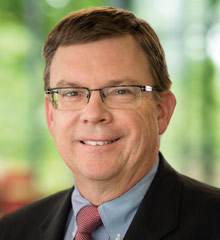Commentary on 1 Thessalonians 5:16-24
Once again, on this Third Sunday of Advent, we have an appeal, now from Paul, to a community of faith about the way it is to live in the world.
As you know, these verses come from the oldest text in the New Testament, Paul’s first letter, and is addressed to a community he particularly loved. The immediate context of course is set in 1 Thessalonians 4 where Paul states that the return of the Lord is near. We know how both Paul and other Christian communities backtracked on that belief when the Lord did not come as quickly as expected! But perhaps that re-writing of Christian hope is unnecessary if we take seriously other admonitions (as the one from last week) that the Lord can come at any moment, unexpectedly. Then, every moment is truly living in that hope of Christ’s imminent arrival.
In the verses directly preceding our text, the structure of the community is addressed (respect and esteem in love towards leaders) as well as behavior (the leaders are in return to encourage, help, be patient, seek to do good). But now a more general appeal is made to the entire community, an appeal that is the foundation of all previous admonitions and counsel, an appeal that lies at the heart of every Christian life. The way of life together in this community that Paul proposes, stands in opposition to everything that believers experience in their relationship to the world.
We sometimes forget the radical nature of that appeal (do good to all, help the weak, do not repay evil for evil). In Paul’s first century context, the standard governing human relationships of course was different. It was about pay back, about maintaining and guarding one’s respect (not giving respect!). I believe we can safely say that it is very much the same today. Everyone is out for him or herself and lawyers offering litigation are among the best paid professionals! Paul’s appeal goes against the grain of this self-centered world, admonishing not only to a way of life in the community but in openness towards all. This way of life that characterizes Christian “waiting” breaks open the restrictions and restraints of human interaction focused upon the self.
But there are other marks of this waiting as well. Paul could not state it more clearly, “Rejoice always, pray without ceasing, give thanks in all circumstances.” Of course we are not being told to keep a law! This is not a command that must somehow be fulfilled. Rather, Paul is naming the work of the Spirit in the midst of the community, in the midst of life. It is the Spirit’s work that awakens and sustains rejoicing and prayer and thanksgiving. In other letters, Paul makes it clear that these things are fruits of the Spirit (Galatians 5:22; Romans 8:15-16).
If we allow our Scripture readings for this Third Sunday of Advent to dialogue among themselves, we have ample indication of the source of this rejoicing, praying and thanksgiving. Psalm 126 speaks directly to it: “When the Lord restored the fortunes of Zion, we were like those who dream. Then our mouth was filled with laughter, and our tongue with shouts of joy…” When the Lord restored, when the Lord did this, when God acts, only when God acts, are we caught up in that action of rejoicing, praying and thanksgiving. Martin Luther writes about thanksgiving in particular as that “art of the Holy Spirit.” And of course prayer is never just the inclinations of the human heart but the Spirit working God’s Word through and in our existence, revealing our need and raising our cry, both of lament and praise.
It is this work, this art of the Holy Spirit that sanctifies each believer and the community entirely (verse 23). The believer or the company of believers can never keep themselves sound and blameless. Any such “keeping” is rooted in the Holy Spirit’s action. What does this mean? The imperatives rejoice, pray, give thanks are evangelical imperatives. Paul is naming the action of the Holy Spirit as it manifests itself in the life of the community and he calls on the community to acknowledge, name, live into these gifts.
These gifts are not simply moral obligations or disciplines intended to prepare the believer. No, they are already manifestations of God’s presence in the Spirit that consumes and transfigures spirit, soul and body. Yet, how often do we relegate prayer to “when we have time” and rejoicing to praise songs? How often do we eliminate thanksgiving all together as if it were merely our work rather than the Spirit’s? Do not quench the Spirit!
The believer, the community of faith, may be waiting for the imminent parousia but, at the same time, the waiting happens already in the Lord, waiting in the presence of God’s Spirit who is working and shaping the community into a gospel witness. The Spirit works in and out of the community, we do not know how. Yet the community is given these signs: a deep gospel joy, an incessant prayer in words and in silence, a thanksgiving that culminates in Christ’s own body and blood shared in the community.
Christ is faithful (verse 24). The believer and the community are constituted by that faithfulness. Christ will accomplish all this in the community through the Spirit. Christ, the one we are waiting for, is already in our midst and we do not know him (John 1:26). It is this faithful one who continually calls the community into this exercise of faith, an exercise that is not just individually accomplished but communally realized. “Greet all the brothers and sisters with a holy kiss.” Greet one another, male and female, with a kiss that breaks social and cultural norms. You are a community rooted in the Spirit. Live this sign of paradox.

December 11, 2011